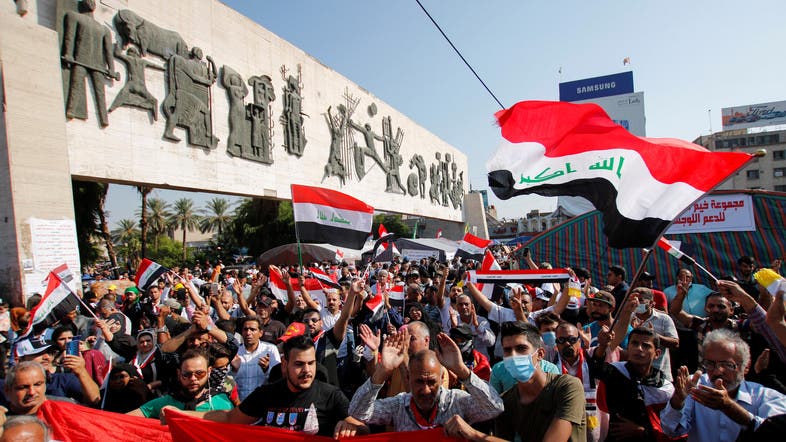Schools and public institutions across Iraq remained closed on Sunday, as protesters started fires and blocked key roads during ongoing anti-government protests.
While Iraq’s Teachers Union announced a nationwide strike in solidarity with demonstrators, the Ministry of Education issued a statement confirming that Sunday was an official work day.
In the cities of Baghdad, Basra, Nasiriyah, and Hillah, administrators defied the ministry’s statement and joined protesters in the streets.
Demonstrators set fire to tires, wood, and other debris on Sunday morning, causing traffic jams in the Iraqi capital and elsewhere across the country.
“We decided to cut the roads as a message to the government that we will keep protesting until the corrupt people and thieves are kicked out and the regime falls,” said Tahseen Nasser, a 25-year-old protester.
“We’re not allowing government workers to reach their offices, just those in humanitarian fields,” including hospitals and police officers, he said.
Sunday’s protest followed mass demonstrations a day earlier that turned violent as security forces killed one protester and wounded 91 others in Baghdad, according to security and medical sources.
The protesters congregating in the capital’s central Tahrir Square on Saturday blocked roads leading to a major port.
Security forces on Saturday erected concrete walls on one of Baghdad’s main streets which leads into Tahrir Square in an attempt to reduce the turnout, but a spontaneous protest in which crowds surrounded soldiers driving bulldozers forced them to take the structures down.
“Take it down, take it down,” they chanted.
Iraqis have been protesting, mostly in Baghdad and southern regions, since October, demanding sweeping change to the political system established after the 2003 US-led invasion, which they blame for widespread corruption, high unemployment and poor public services.
The protests in Iraq and similar demonstrations in Lebanon have been fueled by local grievances and mainly directed at the political elite, but they also pose a challenge to Iran, which closely backs both governments.
An increasingly violent crackdown in Iraq has raised fears of a backlash by Iran and its heavily armed local allies.








































admin in: How the Muslim Brotherhood betrayed Saudi Arabia?
Great article with insight ...
https://www.viagrapascherfr.com/achat-sildenafil-pfizer-tarif/ in: Cross-region cooperation between anti-terrorism agencies needed
Hello there, just became aware of your blog through Google, and found ...